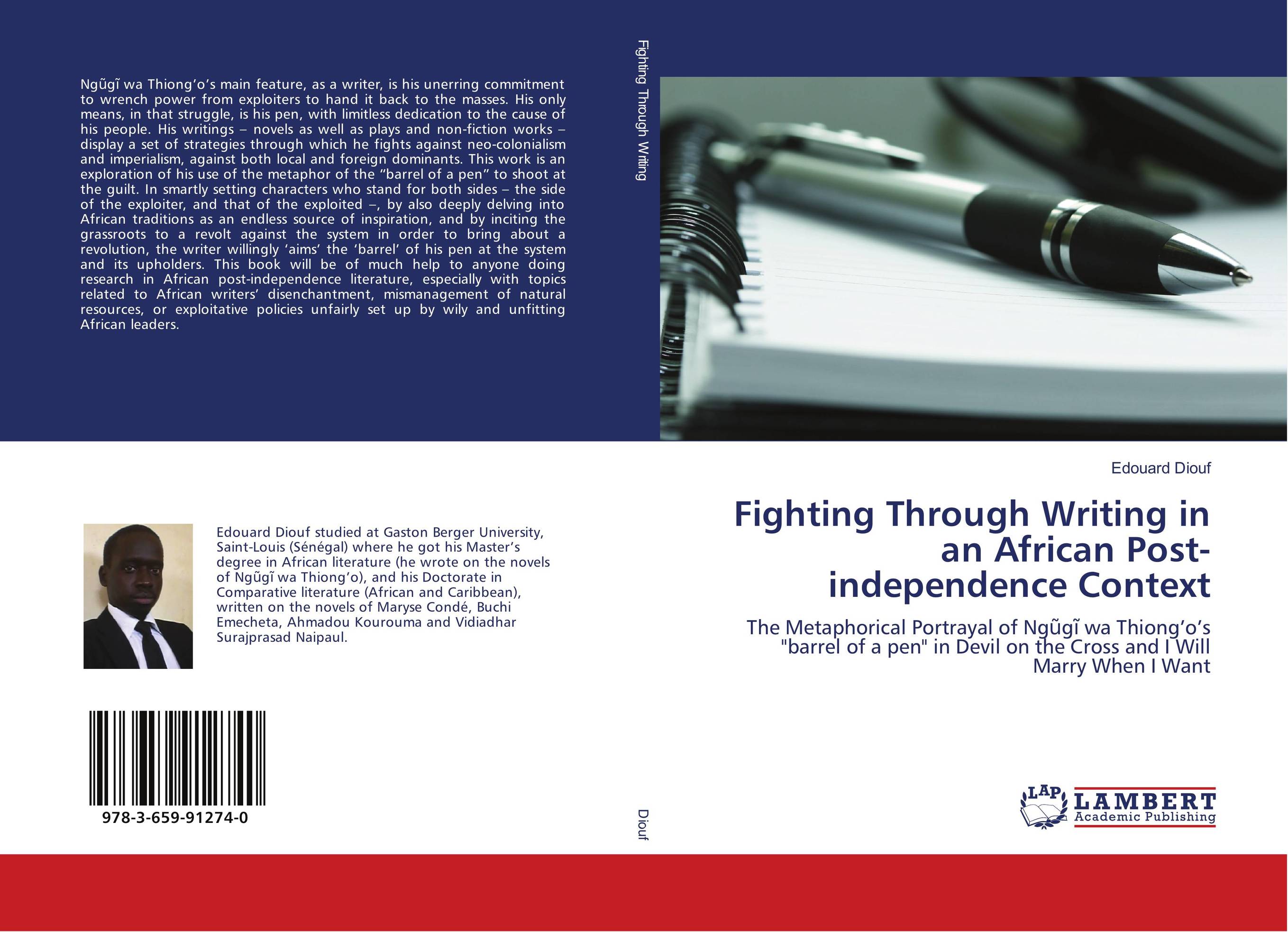| Поиск по каталогу |
|
(строгое соответствие)
|
- Профессиональная
- Научно-популярная
- Художественная
- Публицистика
- Детская
- Искусство
- Хобби, семья, дом
- Спорт
- Путеводители
- Блокноты, тетради, открытки
Fighting Through Writing in an African Post-independence Context. The Metaphorical Portrayal of Ng?g? wa Thiong’o’s "barrel of a pen" in Devil on the Cross and I Will Marry When I Want

В наличии
| Местонахождение: Алматы | Состояние экземпляра: новый |

Бумажная
версия
версия
Автор: Edouard Diouf
ISBN: 9783659912740
Год издания: 2016
Формат книги: 60×90/16 (145×215 мм)
Количество страниц: 132
Издательство: LAP LAMBERT Academic Publishing
Цена: 33510 тг
Положить в корзину
| Способы доставки в город Алматы * комплектация (срок до отгрузки) не более 2 рабочих дней |
| Самовывоз из города Алматы (пункты самовывоза партнёра CDEK) |
| Курьерская доставка CDEK из города Москва |
| Доставка Почтой России из города Москва |
Аннотация: Ng?g? wa Thiong’o’s main feature, as a writer, is his unerring commitment to wrench power from exploiters to hand it back to the masses. His only means, in that struggle, is his pen, with limitless dedication to the cause of his people. His writings – novels as well as plays and non-fiction works – display a set of strategies through which he fights against neo-colonialism and imperialism, against both local and foreign dominants. This work is an exploration of his use of the metaphor of the “barrel of a pen” to shoot at the guilt. In smartly setting characters who stand for both sides – the side of the exploiter, and that of the exploited –, by also deeply delving into African traditions as an endless source of inspiration, and by inciting the grassroots to a revolt against the system in order to bring about a revolution, the writer willingly ‘aims’ the ‘barrel’ of his pen at the system and its upholders. This book will be of much help to anyone doing research in African post-independence literature, especially with topics related to African writers’ disenchantment, mismanagement of natural resources, or exploitative policies unfairly set up by wily and unfitting African leaders.
Ключевые слова: Bourgeoisie, culture, ideology, proverbs, songs, struggle, businesspeople, Aesthetics, peasants/workers



